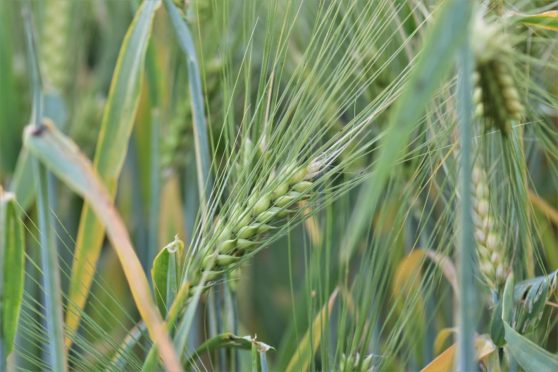New trials have launched to assess whether the targeted application of fertiliser can help reduce a farm’s carbon footprint.
The trials, carried out by SAC Consulting with funding from the Mains of Loirston Charitable Trust, aim to determine whether better use of fertiliser on cereal crops can lead to a reduction in a farm’s carbon footprint.
They follow trials carried out by the Farming for a Better Climate Soil Regenerative Agriculture Group last year, where 100kg of Nitrogen per hectare was applied to a range of arable crops, followed by several 5kg per hectare applications of foliar Nitrogen.
The latest trials will be on a larger scale with a view to testing the effectiveness of foliar feeds – these aim to supply small amounts of nutrients to crops in a targeted manner.
They are taking place at three sites across Scotland – one with spring barley and two with winter wheat.
Six base rates of fertiliser have been applied to the crops to produce a full fertiliser response curve, and at two rates – 100kg per hectare and 150kg per hectare for winter wheat, but lower for barley – the crops will receive up to three applications of foliar nitrogen at 5kg per hectare.
Researchers will calculate fertiliser uptake later in the year by measuring the crops’ nitrogen content at harvest.
“The design of the trials will allow us to quantify how much of the nitrogen supplied through the soil and leaf is captured by the crop and contributes to yield,” said Ian Bingham, professor of crop physiology at Scotland’s Rural College (SRUC).
